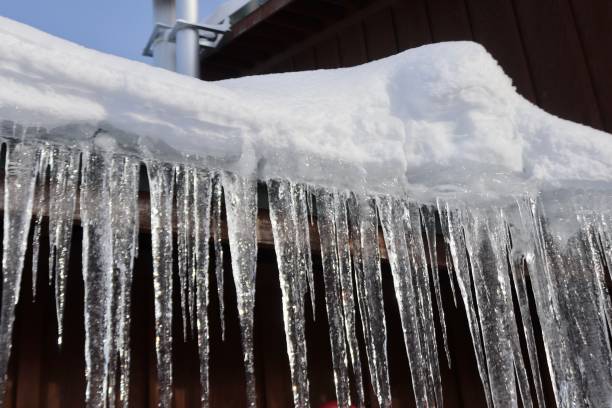Protecting Against Frozen Plumbing in Winter: Expert Strategies
Protecting Against Frozen Plumbing in Winter: Expert Strategies
Blog Article
We've come across this post on Helpful Tips to Prevent Frozen Pipes this Winter listed below on the net and figured it made perfect sense to share it with you on my blog.

Cold weather can damage your plumbing, especially by freezing pipes. Below's exactly how to stop it from happening and what to do if it does.
Introduction
As temperature levels decrease, the threat of frozen pipes increases, possibly resulting in pricey repairs and water damage. Comprehending exactly how to stop icy pipelines is vital for homeowners in cool environments.
Understanding Frozen Pipes
What triggers pipes to freeze?
Pipes ice up when exposed to temperatures below 32 ° F (0 ° C) for extended durations. As water inside the pipes ices up, it increases, putting pressure on the pipe wall surfaces and possibly causing them to burst.
Dangers and problems
Icy pipelines can bring about supply of water interruptions, property damages, and pricey fixings. Ruptured pipes can flood homes and cause considerable structural damage.
Indicators of Frozen Water Lines
Determining frozen pipelines early can stop them from bursting.
How to recognize frozen pipes
Try to find decreased water flow from taps, uncommon smells or noises from pipelines, and visible frost on revealed pipes.
Prevention Tips
Insulating vulnerable pipes
Wrap pipes in insulation sleeves or make use of warm tape to protect them from freezing temperature levels. Concentrate on pipes in unheated or external areas of the home.
Heating strategies
Keep indoor spaces properly heated up, especially areas with pipes. Open cupboard doors to permit warm air to flow around pipes under sinks.
Shielding Outside Pipes
Garden hoses and exterior taps
Separate and drain pipes yard pipes before winter. Install frost-proof faucets or cover exterior taps with protected caps.
What to Do If Your Pipes Freeze
Immediate activities to take
If you believe icy pipes, maintain faucets open up to soothe stress as the ice melts. Make use of a hairdryer or towels taken in hot water to thaw pipelines slowly.
Long-Term Solutions
Architectural modifications
Think about rerouting pipes far from exterior wall surfaces or unheated locations. Add added insulation to attics, cellars, and crawl spaces.
Upgrading insulation
Purchase premium insulation for pipelines, attic rooms, and walls. Appropriate insulation aids maintain regular temperature levels and minimizes the danger of icy pipelines.
Conclusion
Stopping frozen pipes needs proactive steps and quick feedbacks. By comprehending the causes, signs, and preventive measures, homeowners can secure their pipes throughout winter.
Helpful Tips to Prevent Frozen Pipes this Winter
UNDERSTANDING THE BASICS: WHY PIPES FREEZE AND WHY IT’S A PROBLEM
Water freezing inside pipes is common during the winter months, but understanding why pipes freeze, and the potential problems it can cause is crucial in preventing such incidents. This section will delve into the basics of why pipes freeze and the associated problems that may arise.
THE SCIENCE BEHIND FROZEN PIPES
When water reaches freezing temperatures, it undergoes a physical transformation and solidifies into ice. This expansion of water as it freezes is the primary reason pipes can burst. As the water inside the pipe freezes, it expands, creating immense pressure on the walls. If the pressure becomes too great, the pipe can crack or rupture, leading to leaks and water damage.
FACTORS THAT CONTRIBUTE TO PIPE FREEZING
Low Temperatures: Extremely cold weather, especially below freezing, increases the risk of pipes freezing. Uninsulated or Poorly Insulated Pipes: Pipes located in unheated areas, such as basements, crawl spaces, or attics, are more prone to freezing. Insufficient insulation or lack of insulation altogether exacerbates the problem. Exterior Wall Exposure: Pipes running along exterior walls are susceptible to freezing as they encounter colder temperatures outside. Lack of Heating or Temperature Regulation: Inadequate heating or inconsistent temperature control in your home can contribute to frozen pipes. PROBLEMS CAUSED BY FROZEN PIPES
- Pipe Bursting: As mentioned earlier, the expansion of water as it freezes can cause pipes to burst, resulting in significant water damage.
- Water Damage: When pipes burst, it can lead to flooding and water damage to your property, including walls, ceilings, flooring, and personal belongings.
- Structural Damage: Prolonged exposure to water from burst pipes can compromise the structural integrity of your home, leading to costly repairs.
- Mold and Mildew Growth: Excess moisture from water damage can create a favorable environment for mold and mildew growth, posing health risks to occupants.
- Disrupted Water Supply: Frozen pipes can also result in a complete or partial loss of water supply until the issue is resolved.
WHY CERTAIN PIPES ARE MORE PRONE TO FREEZING
- Location: Pipes located in unheated or poorly insulated areas, such as basements, crawl spaces, attics, or exterior walls, are at higher risk of freezing.
- Exterior Pipes: Outdoor pipes, such as those used for irrigation or exposed plumbing, are particularly vulnerable to freezing as they are directly exposed to the elements.
- Supply Lines: Pipes that carry water from the main water supply into your home, including the main water line, are critical to protect as freezing in these lines can affect your entire plumbing system.
- Underground Pipes: Pipes buried underground, such as those connected to sprinkler systems or outdoor faucets, can be susceptible to freezing if not properly insulated.
https://busybusy.com/blog/helpful-tips-to-prevent-frozen-pipes-this-winter/

We were made aware of that editorial on How To Avoid Freezing Pipes from a pal on another web blog. Sharing is caring. Helping people is fun. Thanks a bunch for your time. Kindly check up our blog back soon.
Details Report this page